Don't wanna be here? Send us removal request.
Text
I don’t know most of these, but definitely not unhappy with Bruce, or Samwell, for that matter.
Bruce Banner (Marvel Cinematic Universe): 91%
Abed Nadir (Community): 89%
Leonard Hofstadter (The Big Bang Theory): 87%
Bernard Lowe (Westworld): 86%
Lucius Fox (The Dark Knight): 86%
Jared Dunn (Silicon Valley): 86%
Filius Flitwick (Harry Potter): 85%
Samwell Tarly (Game of Thrones): 84%
this personality test just obliterated me. saying it roasted me would be the biggest understatement
25K notes
·
View notes
Text
Thanks for the tag, @parvasilvi. I am at the moment working on a short for a competition, which has to have exactly 55 words. It is in Dutch, but I can easily translate the first sentence: As usual the only sound during dinner was the clicks of cutlery against plates. I tag, with nil pressure as I know she is very busy, @moonchildwritessometimes, maybe you have something brewing?
First Line Meme
Rules: Post the first line of your WIP and tag as many people as you like
Thanks for the tag @astridcontramundum! I actually have an Endeavour WIP at the moment! It’s so very close to being done, just the ending is refusing to crystallize…
Jakes had parked across the street from Oxford Castle Prison and was having a quick cigarette as he waited, leaning against the driver’s side of the car.
I’m tagging @piarou-neelix, you got any writing you wanna share? And @bryndeavour, @not-easy-being-green124, @lady-sigyn, and anyone who’s following me and wants to tag me the first line of their WIP
8 notes
·
View notes
Photo
https://www.youtube.com/watch?v=OBk3ynRbtsw For the full original.
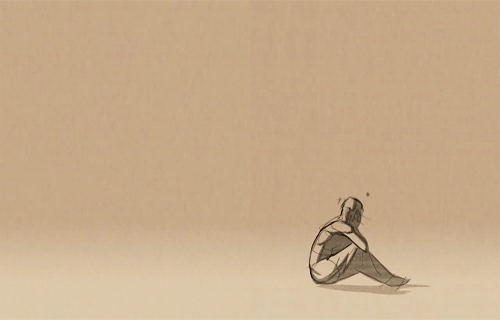
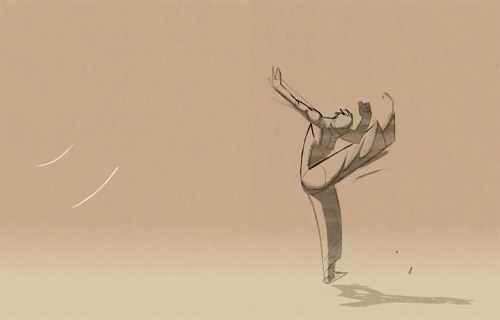
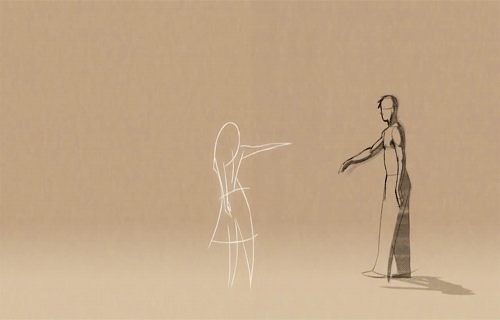
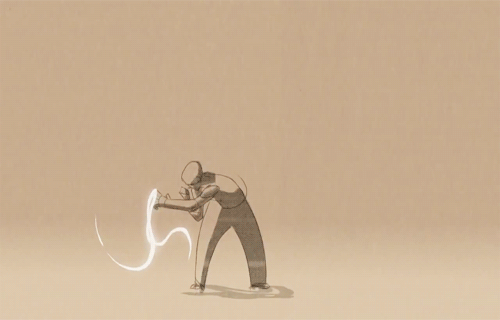
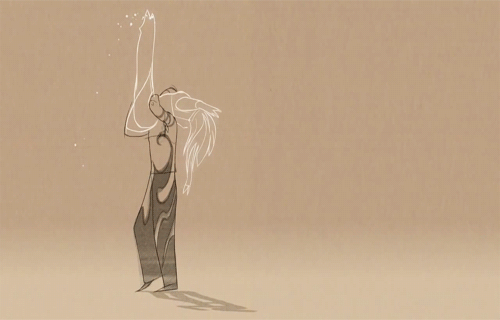
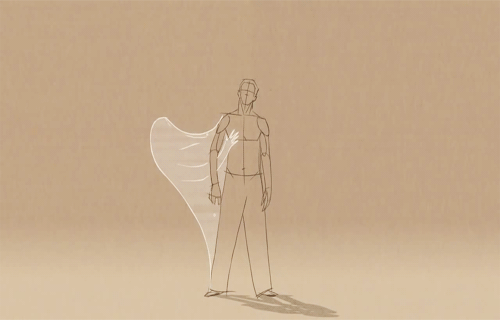
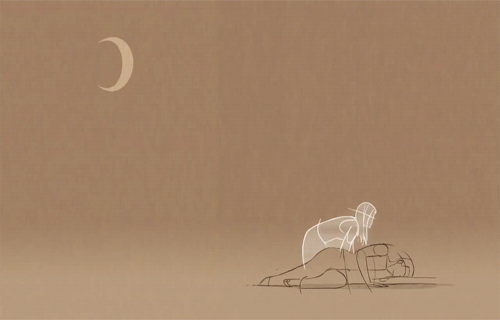
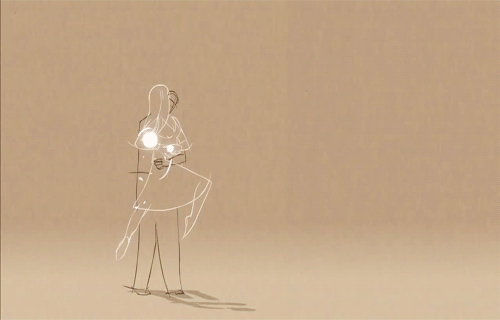
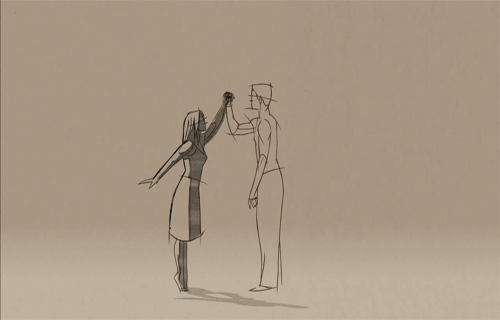
I thought of you and where you'd gone and let the world spin madly on (X)
78K notes
·
View notes
Video
I am in the lucky situation that my GP is a compassionate man (helps his specialization is children on the autism spectrum), but I have loads of friends who aren’t as fortunate as I am. For them I reblog this, in the hope one GP sees this and gets better because of it.
tumblr
How most people with invisible illnesses are treated by health care “professionals”
348K notes
·
View notes
Text
Reblogging for those who, like me right now, need to see this. Guilt is not a crop, people, so don’t grow it.
Mental Crop Rotation
When farmers grow the same crop too many years in a row, it can leave their soil depleted of minerals and other nutrients that are vital to the health of their fields.
To avoid this, farmers will often alternate the crops that they grow because some plants will use up different minerals (such as nitrogen) while other plants replenish those minerals. This process is known as “crop rotation.”
So the next time you find that you need to step away from a project to work on something else for a while, don’t beat yourself up for “quitting” that project. Give yourself permission to practice “mental crop rotation” to maintain a healthy brain field.
Because I’ve found that when that unnecessary guilt and pressure are removed from the process, a good mental crop rotation can help you feel more energized and invigorated than ever once you’re ready to rotate back to that project.
115K notes
·
View notes
Text
More info through this link: https://www.newsflare.com/video/5920/animals/shark-hook-removal I love the grace of sharks!
إنسانية 🕊️
tumblr
نزعت الخطاف من فم احد القروش وعند مشاهدة القروش الاخرى لذلك صارت القروش تأتي لنفس المكان لنزع الخطاف من فمها علما ان هذه القروش لا تحب ان يلمسها احد.
هذا في البهاما والغواصة ،خلال الـ 15 سنة الماضية ، أزالت 250 خطاف.
94K notes
·
View notes
Text
Meddlesome Peer with 10,000 pounds a year
For anyone who’s ever wondered who they’d be in a 19th century novel, the wait is over: I put together a 19th Century Character Trope Generator!
If you’d like to reblog, put your character in the tags because I’m curious.
#I obviously met the bumbling poet#and was lucky enough to avoid the rage#but instead got my role described by them#Meddlesome Peer with 10000 pounds a year
128K notes
·
View notes
Link
Hiya people. The Project For Awesome 2018 has started, and this is the link to where you can see and vote for my video for it. Feel free to vote and/or donate to this amazing cause. Thanks.
4 notes
·
View notes
Text
Where is Mercedes Lackey in this list? Just because she is too long ago? Darn, she wrote strong female characters, LGTBI+ books long, long ago. She deserves more respect, imho. So I will shout it at y’all again: READ MERCEDES LACKEY! Thank you. :D
Hey can I just say that it’s utterly fucked that George RR Martin and Patrick Rothfuss are revered as gods of modern fantasy writing when neither of them has been able to produce a book in years and they also can’t write women
plus George RR Martin just copied wars of the roses
and Rothfuss made a legit plot point that Kvothe fucked a fairy for months
I’m not saying that I don’t enjoy these books, because I do, but I am just saying that I read fantasy books 10x better by women all the time.
meanwhile, there are so many female fantasy authors who produce brilliant work, but because it is marketed towards women, it’s either YA or it’s paranormal romance (BOTH OF WHICH I STAN OK) and therefore doesn’t get considered “serious” fantasy even though they have better world building, magic, and writing style than most “masters of the genre.”
like, why is it that fantasy books written about women and by women are ONLY READ BY WOMEN AND MARKETED TO WOMEN, meanwhile fantasy books written by men about men are READ BY EVERYONE AND MARKETED AS THE NORM.
like male fantasy nerds are just sleeping on Ilona Andrews because they write about women and add a romance plot line, meanwhile Kate Daniels is one of the best damn fantasy series I have ever read with some of the best world building and plotting e v e r.
And I’m not implying that authors have to produce 3 books a year to be serious authors, but it’s a bit ridiculous that the fantasy genre and pub industry keeps pushing asoiaf and kingkiller chronicles at us when we don’t even have a date for the sequel. WHY DON’T YOU PROMOTE BOOKS BY WOMEN WHO KNOW HOW TO WRITE GOOD FEMALE CHARACTERS?? WHY NOT PROMOTE FANTASY BOOKS BY AUTHORS OF COLOR??
WHY IS FANTASY ON THE SAME WHITE MAN BULLSHIT ALL THE TIME????
21K notes
·
View notes
Photo

Bridge to another place...
0 notes
Photo
Near-optimal use of food as well. ;)

246K notes
·
View notes
Photo
But now I would LOVE to see a kitagory 7 orso. Or a 9, an 11, an......
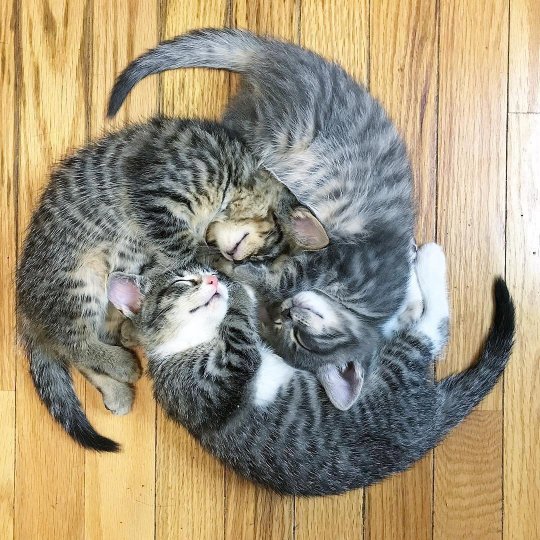
oh………..
it’s a kitty hurricane.
168K notes
·
View notes
Photo
Maybe that is why I remember series of numbers better when there’s a three in them? ;)

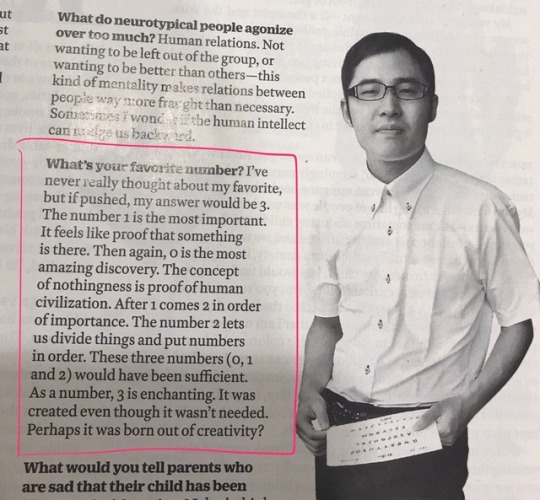
190K notes
·
View notes
Photo
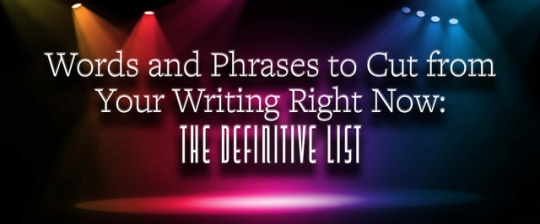
So, so many works I’ve read could be vastly improved with tightening and shaving of superfluous words. Wordiness is an easy stumbling block, as we’re used to how we talk. We’re used to how others (long ago) wrote. But times change, my friend, and so do expectations of the writer. We don’t get paid by the word in fiction. So show your smarts and say as much as you can with as much power as you can in as few words as possible.
Here are a few things you can cut without reserve to help shorten your story right now. And as you catch yourself using these words in your next draft, hit that backspace before you finish the sentence! It’s okay if you already have. You can go delete them now. No one will ever know.

Moment/Second/Minute
It’s so tempting. I am guilty of using this word like fertilizer in my first drafts. But most of the time, these words aren’t needed at all. They add nothing.
He sat down for a moment, sipping his coffee. vs. He sat down and sipped at his coffee.
But he only did it for a moment, you say!
He sat down for a moment, sipping his coffee. When the door opened a second later, he shot to his feet. vs. He sat down and sipped his coffee. The door opened, and before he could swallow his first sip, he shot to his feet.
I know, this is about making your writing more concise and my “right” example has more words than the first example. But what’s the difference? The words used in the second sentence are more tangible. They give a visual that “a second later” and “for a moment” don’t. And you could leave that part out, of course, if you’re really going for trimming word count. It doesn’t paint quite the same image, but “The door opened and he shot to his feet.” is a perfectly good sentence.
Suddenly/All of a sudden
You’ve heard this one, before, surely. These words are used…when? When you’re trying to portray suddenness. Surprise, perhaps. So why are you adding in extra words to slow down the pace?
She flipped on the TV and reclined in her chair. All of sudden, the TV flashed a bright light and the power went out. vs. She flipped on the TV and reclined in her chair. The TV flashed once before the lights went dark. The power was out.
That sense of immediacy is felt when stuff just happens. So let it happen. If it’s rhythm you’re worried about, then find more useful words to create the rhythm. Notice that I didn’t just cut “All of a sudden” out of the sentence and leave it. I reworded it a bit to make it stronger.
Finally
It can be a useful word, but more often than not, it’s just taking up space.
Really/Very
Just…delete them.
To alter a Mark Twain quote:
“Substitute ’[fucking]’ every time you’re inclined to write ‘very;’ your editor will delete it and the writing will be just as it should be.”
But seriously, if you’re saying, “She was breathing very hard.” You could just cut the “very” and say, “She was breathing hard.” Or, even better, “She was panting.” Or, EVEN BETTER: “She panted.”
Himself/herself/myself/themselves
Reflexive nouns have a specific purpose, though they can still often be avoided. They fall into the category of “use only when it’s confusing otherwise.”
Correct: He looked at himself in the mirror. Better: He looked in the mirror.
Incorrect: She gave them to Andrew and myself before leaving. Correct: She gave them to Andrew and me before leaving.
Technically correct I guess: I haven’t eaten lunch myself. (Intensive pronoun; aka waste of words) Better: I haven’t eaten lunch.
Intensive pronouns add emphasis, but that emphasis is negligible and often negated by the power of tightening your narrative.
That
You can likely cut 60% of your “that"s and your story will be unaffected. Sometimes, you do need to add a “that” here and there for clarification, but not always. And sometimes it’s just plain incorrect.
The jacket was the coolest one that he’d ever owned. vs. The jacket was the coolest one he’d ever owned.
In other cases, you might do well to substitute “that” with “which.” Though, if you’re doing this, make sure you do it properly. That change can often alter the meaning of your sentence. That can be for the better, though.
The vandalism that read “Bad Wolf” made Rose nervous. vs. The vandalism, which read “Bad Wolf,” made Rose nervous.
Do you see the difference? In the first sentence, the words are what make Rose nervous. In the second, the vandalism itself makes Rose nervous, and it happens to say “Bad Wolf.” In this case, if you’ve watched Doctor Who, then you know the first example is the correct one.
So when you’re sharing details using “that” or “which,” contemplate how important they are to meaning of the sentence to determine which type of clause you need to use.
Then
Or worse, “And then.”
It makes your writing sound a bit juvenile. Either cut it entirely, or substitute “and.”
She jumped into the pool, then hit her head on the bottom. vs. She jumped into the pool and hit her head on the bottom.
And then, after all that time, she fell asleep. vs. After all that time, she fell asleep.
Even
Sometime “even” can help emphasize a situation or behavior, but when it’s used in narrative improperly, it sounds childish and silly.
He couldn’t even breathe. vs. He couldn’t breathe.
Even with the new hair gel, his hair was terrible. (This one is fine, though you could still cut that “even” if you really wanted to…)
Just
Just…Delete it.
Breathe/breath/exhale/inhale/sigh/nod/shrug
Another one I’m so guilty of. In my first drafts, I tend to talk about how a character is breathing, or when they’re sighing like nobody’s business. I know a lot of writers who are guilty of this, too. It’s a great tool to use scarcely. In intense moments, you can let your character take a final deep breath to calm themselves. When a character almost drowns, those first few sweet breaths are important. But you readers know that people breath all the time. And just because you need a beat in your dialogue doesn’t mean you need to remind your reader that the character is still breathing or moving.
Rather/quite/somewhat
She was rather tall. She was tall. He was quite idiotic. He was idiotic. They were somewhat snazzy. They were snazzy. Why do you need those words? Kill ‘em.
Start/begin
This is a great example of fluff.
She started to run toward the shop. vs. She ran toward the shop.
He began scolding them for their performance. vs. He scolded them for their performance.
There are obviously uses for this word, like anything. He started the car. Begin your tests! But when you’re using it to slow the action and the pace of your narrative, then consider heavily if you need it. You probably don’t.
In order to/in an attempt to
Phrases that add unneeded complications, cumbersome wording…kill ‘em!
She bit down in an attempt to stop herself from screaming. vs. She bit down to stop herself from screaming.
Was able to
He was able to call. vs. He could call. OR He called.
This is one that isn’t inherently bad, but it can easily be overused and cutting it will help simplify your narrative.
Due to
Ugh. Are you trying to sound proper and stuffy? Because that’s a reason, I guess, to use this phrase…and yet it sounds like doodoo. (Yes. I’m an adult.) Rephrase. Use “Because of” or just avoid the need altogether.
We stopped due to traffic. vs. We stopped because of traffic. OR (Strength of narrative!) We stopped mid-highway. The parked cars went on beyond the curve of the road, out of sight.
Visibly/obviously/apparently/audibly
These are a sign of telling in your narrative when you should probably be showing.
She was visibly shaking. –> She shivered, hugging her upper arms. He was obviously tired. –> He yawned and tripped on his own feet as he crossed the room. They were apparently angry. –> They stomped and shouted, demanding attention. She screamed audibly. (Really?) –> She screamed.
Don’t tell your readers what emotion a character is feeling. Instead, give a few clues that they can see/hear/feel the emotion too.
While
This word has lots of legitimate uses. However, if you’re using it poorly, then your narrative reads like an Early Reader’s book, and you (unless that’s what you’re writing) probably don’t want that.
“Get it together,” he said while flipping them off. vs. “Get it together,” he said, flipping them off.
Turned
One of the classics. So overused, my friends. It’s needed on occasion, but not nearly as often as we use it. Just cut it out.
They turned toward her as they spoke. vs. They gave her their full attention as they spoke. OR They looked into her eyes. OR (Nothing. Readers don’t have to be updated on every little movement.)
Saw/looked/regarded
UGH. Regarded:Looked::Mentioned:Said
And, like “said,” many, many instances of these words can be nixed.
She saw them run for the hills. vs. They ran for the hills.
This can be tricky, I know, when you’re writing in limited-third or first POV. It’s tempting to put every action directly through your POV character’s filter. But resist that temptation! There are times when it’s appropriate, occasionally, but it can be overdone so easily.
I looked at her and said, “Please.” vs. I said,“ Please.” OR. I took her hand. “Please.”
This example sides with the breathing and the turning. It’s often an unneeded update on the tiny movements of the characters. And, again, sometimes you need that beat or that little detail in an intense moment, but not often.
Said/replied/stated/spoke/mentioned/asked/commented/yelled/cried/shouted
I’m not here to tell you to cut all your dialogue tags (please don’t). I’m also going to the last person who insists you get rid of “said.” In fact, I’m in the “said is invisible” party of writing nerds and I think, if you’re going to use a standard tag, it should be “said” 90% of the time.
But aside from that, using as few dialogue tags as possible is a good thing. I’ll do a full post on this soon, but for now, be aware of how often you rely on these words in your dialogue and do your best not to overuse them. Use surrounding action and context to take some of the reliance off of these words.
To-Be in all its conjugated forms
If you’re using any of this list:
am, is, are, was, were, be, being, had been
Then check yo'self. Some tenses call for an auxiliary verb. Some types of sentence do, too, not doubt about it. But many don’t, and cutting to-be verbs when you can will help tighten your writing.
We were going to the store. vs. We went to the store.
Sounds were echoing through the chamber. vs. Sounds echoed through the chamber.
To-be verbs can also be an indicator of passive voice, though they aren’t always.
He was hit by the ball. vs. The ball hit him.
Last but not least, check all of your adverbs.
Chances are, if you’re using an adverb, you could be using a single strong verb instead and giving each sentence more punch.
He ran quickly. –> He sprinted. I hit him hard. –> I socked him. She spoke quietly. –> She whispered. They ran into each other fast. –> They crashed.
So what am I supposed to do about this?
Take it to heart. Try not to let these words take over your brain as you write. Once your manuscript is finished, try this method:
Use Find and Replace. Replace any and all of the aforementioned words in ALL-CAPS. Now, if you’ve paid attention to my advice in using emphasis, then those all-caps will really stick out as you’re reading over your work and you can decide at each instance whether your usage is appropriate, or if it needs to be rewritten. As I did to this very old draft of mine from my first NaNoWriMo (in which I used every single word on this list, I’m sure).

When I used this method with my most recent WIP, I was able to cut my word count from 105k to 93k without cutting any content whatsoever. It takes a lot of work and it’s pretty tedious but the results are amazing!

It wouldn’t be the English language without exceptions, would it?
Now, there is actually an important time for intentionally using any or all of the words on this list. You know when that is?
When it fits the character’s voice. - More on this in my next post!
24K notes
·
View notes
Text
Strawberry-child
My Grandpa, you have to know, already had depression when I was born. Until the day he died, I had never really gotten to know the man he once had been, before the disease had taken hold.
People told me that my Grandpa had been witty, and full of life. His eyes had sparkled when he had teased others gently, when he had laughed when he had surprised everyone with a good joke.
I couldn’t remember any of that. The Grandpa I knew was neither really witty, nor full of life. And I had never seen his eyes sparkle, or heard him laugh aloud.
That doesn’t mean that I didn’t love my Grandpa. I did, very much so. He was very patient with us children – his precious grandchildren, he called us. He was a good listener, and probably the kindest, most gentle person I’ve ever met.
But Grandpa was always a bit sad, and a bit tired. We could never visit him for long, because he had to go back to bed after a short time.
“Your Grandpa is easily tired,” my parents explained to me. “That has nothing to do with you.”
Well, I didn’t think it had. I always had fun when we visited Grandpa and Grandma, and even though Grandpa’s smile never really reached his eyes and he fell asleep easily, I know he enjoyed it, too.
He would get up early, to prepare everything for us. He would smile often, even though it cost him much energy.
And, especially – he would go outside, into his personal little garden, and pluck all the ripe strawberries he could find from the bushes, arrange them on a little plate, and wait patiently for me to run into the living room where he was waiting with the strawberries. He would smile – sometimes, it even reached his eyes – and say, “There is my girl.”
It was our ritual, and neither of us would have changed anything about it.
Until one day, I was four at that time, Grandpa was nowhere to be seen when I ran into the living room. No Grandpa, no strawberries on the table.
It was raining outside, the sky dark and crying, and Grandma followed after me where I stood in the middle of the room, utterly confused.
“Where is Grandpa?”
“He went back to bed, sweetie,” Grandma looked ready to fall asleep herself – so, so tired. “You will just have to wait for him. I’m sure he will come down when he hears that you’re here. How about you draw something for him in the meantime?”
I nodded, suddenly feeling sad all of sudden. So Grandpa had one of his “cloudy days” as I called them, where he was feeling even more tired and sad than usually.
I sat myself into a corner, paper and colorful pens strewn out next to me, and started to draw. A big, smiling sun, and red dots for strawberries, and me and Grandpa should be on the drawing, I decided.
While I was drawing, my Grandma talked to my parents, in hushed whispers.
Adults tend to forget that children understand more than they think.
“It’s the new medicaments… they make him even more tired.”
“Can’t he change…?”
“Switching from one to the other was already bad enough. I almost couldn’t get him out of the bed in the mornings… he didn’t want to get up at all…I’m so glad you came today. He always feels better when he knows that you come to visit…”
It wasn’t the first time that I overheard the adults talk about Grandpa. I didn’t understand everything they said – strange words like “therapy” and “depression” were unknown to me then. The use of “medicaments” had me led to believe that Grandpa was sick, like me when I had to flu or something, and I always hoped he would get better soon.
When I had asked Grandpa about it, he had just shook his head and ruffled my hair. “Don’t worry about me, sweetie. Your Grandpa is going to be okay.”
I was utterly engrossed in my drawing, until suddenly, everyone was running around, worried voices sounding throughout the house.
“Where is he?! He can’t just leave the house without telling me, something could happen to him…”
“Mother, calm down, I’m sure he didn’t go that far…!”
“Where would he go in this weather?”
I was looking around, confused because everyone was so loud and worried.
My Mum kneeled down to me, shrugging her jacket on while she told me, “Stay right here, okay? We’re just going out for a walk for a moment. We will be right back.”
“Ok,” I said, nodding, and went back to my drawing.
In a matter of minutes, I was left alone in the big old house, while my parents and my grandmother went outside to search for my grandfather (though I didn’t know that in that moment, firmly believing that they had gone for a walk).
I was content with drawing until a few minutes later, someone cleared his throat right next to me, saying warmly: “Aaah. There is my little girl.”
I looked up from my drawing, beaming as I saw my Grandpa standing in the door way to the garden. “Grandpa!”
My Grandpa smiled back at me. He was soaked wet, having come into the house from the rain, without a jacket or boots or anything. He didn’t even seem to mind the cold (because cold he must have been), he only smiled tiredly down at me, lifting the plate he was holding in front of him like a present.
The plate was laden with freshly picked strawberries.
My Grandpa explained, “Couldn’t let my granddaughter go back home without her favorite fruits, hm?”
My Grandpa sat me at the big dining table while he went to dry himself off a bit. As he came back, he motioned for me start eating, while he himself just sat there and watched me.
I was stuffing my cheeks with strawberries, until I saw that my Grandpa’s eyes were falling closed again and again.
He was paler than usually, and looked even sadder.
I stopped eating, and watched him, too. He tried to smile, but didn’t really manage.
“Grandpa?”
“Yes, sweetie?”
“Why are you so sad?”
He shifted a bit, blinking slowly. I had never really asked for the source of his sadness.
(Today, I wonder if anybody ever did ask him so directly.)
“Sometimes, we don’t need a reason to be sad. We just are,” this time, he smiled, tightly.
For me, that was very odd. When I was sad, I had a reason to be. I was sad because Grandpa was sad, for example.
“Grandpa?”
“Hmmmm?”
“Can’t you be happy again?”
My Grandpa was quiet for a few moments, looking silently at the plate between us.
Finally, he reached over and picked one strawberry up. It was the smallest of them all, and more than half of its surface was pale-green instead of deep red like the others.
“I made a mistake with this one,” Grandpa said, holding the little berry oh-so gently between his fingertips. “It was too early to take it, and yet I did. Now it will never have the chance to get that happy, red color.”
I nodded, very seriously, thinking myself very mature for understanding his disappointment.
(I didn’t, not really. I would understand later, when I was older.)
Grandpa laid the berry back down and looked up. Looked at me.
And for a moment, it seemed like the sky had cleared. The clouds over his face cleared as he smiled at me. Really smiled, so that it reached his eyes and lit them up.
I laughed, grinned, because it had been so long since I had seen him smile.
He reached over, stroking my cheek with his knuckles, and chuckled. “You have that red color, too. Are you a strawberry, sweetie?”
I laughed some more, thinking that very funny.
Grandpa’s smile slowly disappeared, even though his eyes stayed clear as he said, very quietly, “We are a bit like these strawberries, you know, sweetie? When we are happy, we’re full of color and life. When we are sad, we are pale and…”
He trailed off, frowning slightly, not ending that sentence. And I didn’t dare to ask.
At this point, nobody had yet explained to me what the opposite of “life” is.
“It’s exactly the same,” he continued after a moment. “We are sad and pale sometimes. But with time, and care, and warmth, we get colorful and happy again. Do you understand that?”
I nodded, hesitantly. I didn’t really understand, but I didn’t want to tell him that and disappoint him.
“Sweetie,” grandpa said, almost urgently, “That means, no matter how sad you are, you can get happy again if you just keep living.”
He stopped again, plucking the small, pale strawberry from the plate and looking at it as he added, “If you don’t keep living, then… You will never get a chance to be happy again.”
We looked at each other, really looked. I was a bit confused, and overwhelmed. I understood that he was trying to tell me something important, but wasn’t sure if I really understood what he was saying.
Perhaps he could see that.
Just when we heard the front door open and close again, my parents and my grandmother returning, my Grandpa shook his head, smiling. He reached over to hold my face between his hands, so gently, and pressed a kiss to my forehead. “And, anyway… I’m always as happy as I can be when you visit me, little strawberry-child.”
We couldn’t talk more about strawberries and being sad and becoming happy again after that. My parents and my grandmother were so relieved to see my grandfather (still a bit wet, still cold and pale) safe at home, they took turns in gently reprimanding him and asking him if he was alright.
He nodded along, looking even more tired now that he had all that attention. He was sent back to bed (“You’re almost falling over!”) and smiled back at me as he waved at me.
I waved back, left with my parents who patted my head and hugged me and told me that we probably better went home now.
Only when we were already on our way back home did I realize that I was still holding my drawing, pressed tightly to my chest.
In all that serious talk about strawberries and being sad, I had forgotten to give the drawing to my Grandpa.
We never talked about strawberries again. Our ritual had never changed – Grandpa still awaited me with strawberries every time, and I would be the happiest girl on earth when he greeted me with a smile.
That didn’t change, even as his condition got worse and worse.
Five years later, I was nine, my Grandpa died. Just fell asleep one evening and didn’t wake up again.
My Grandma was crushed at that time. We all were. It took a long time for us to stop missing him, to stop being sad when we visited his grave or just went to visit Grandma.
I hadn’t seen the dead bed of my Grandpa. Nobody would let a nine year old girl see that. But I heard my mother say, in the evening when she came back and cried, “He was so… so pale. Pale and…”
She trailed off, much like Grandpa had trailed off in his sentence all those years ago.
By now, I knew what the opposite of “life” was, and understood what she wanted to say.
Grandpa would never get the chance to get happy and colorful again.
Three more years later, I fell into depression.
No wonder, many people said. I had always been a very quiet, empathic and sensitive child, without many friends. I had been bullied for years, and my parents were in the middle of a divorce at that time.
No wonder, they said, completely normal to fall into depression because of all of this.
That didn’t really make it easier for me.
Suddenly, I understood my Grandpa’s “cloudy days” so much better than I did as a little, clueless child.
I felt sad without reason. I felt sad with a reason. I basically felt sad almost all the time, and when I didn’t, I just felt numb and tired.
I just kind of dragged on. Day for day, I struggled to get out of bed, went to school, did the best I could do in that state. I was still bullied, my parents were still arguing, my father was still blaming me, and I cried a damn river, day after day. But I went on, and on, and on.
I was sent to psychologists, pretty much sent myself, because I knew that I needed help to get out of it. I switched psychologists a few times, but it was basically always the same – questions, taking notes, more questions.
That went on and on for years.
One day, my psychologist asked me, yet again, “Did you ever think about what dying would be like?”
Normally, I would just answer “Yes” and let it be. I was tired of the question, to be honest. I had answered it so many times, over such a long time, that I was wondering if she was awaiting the same answer again and again and just asked because it had become a habit.
But this time, I said, “It would be easier than living, wouldn’t it?”
That had piqued her interest, I could tell. She was taking notes furiously now as she continued, “Are you thinking about trying? To kill yourself, I mean.”
“No. Never.”
Now that surprised her. For the first time in a long while, she looked up from her notes, looked at me. “But you just said that dying would be easier.”
“That I did.”
“But you never think about really wanting to die?”
“No.”
“Why? Don’t get me wrong, that is very good, that you don’t want to do it, but… most people in your situation would…”
I watched as she searched for words, and managed a tired smile.
And I thought of strawberries as I answered.
“Because I’m sad right now. And if I would die right now, being sad and pale, then I would never get the chance to become happy and colorful again.”
After all this years, I still don’t know why my Grandpa decided to tell me this little thing. This comparison between a strawberry and me.
He could have told it anyone, his wife, his children, all his other grandchildren.
But he didn’t.
He told me.
He couldn’t have known that almost a decade later, I would be in a very similar situation to the one he was in – depressed, sad and numb.
I don’t know why he told me. But I’m so, so glad he did.
I never forgot.
I’m almost twenty-one now. My depression never really left me. It got better – so much better – but I know it will never completely leave me. That’s okay. I learned to deal with the remaining of my cloudy days, saying hi to them like to old friends and to send them away again. My life has become a lot better, and much has changed (for the better).
But I never forgot what my Grandpa taught me, when I was a mere child of four years.
What my Grandpa taught me was: No matter how sad and broken you feel, how hopeless – don’t give up hope. Dying may seem like the most comfortable, the easiest way out of this, because it seems as if everything has been lost and there is nothing to live for anymore.
But that’s not true.
Me, and you, and everyone else – we all have a future to live for. We all have chances – not one, not two, but as many as we need – to become happy and lively again. In the future.
The moment you die because you can’t stand it anymore, that’s the moment you lose all the chances to become happy again.
Dying is not your way out. Dying is how you lose. Dying is how the depression wins.
I don’t know about you, but I would rather be a strawberry-child. Being a strawberry-child, that means that you, even when you are sad, you never forget that you can become happy again in the future. That you just have to keep on living, and that, if you do, it will be worth it.
Let’s be strawberry-children together, okay? Until one day, we can become happy and colorful again.
(I promise, you will.)
17K notes
·
View notes








